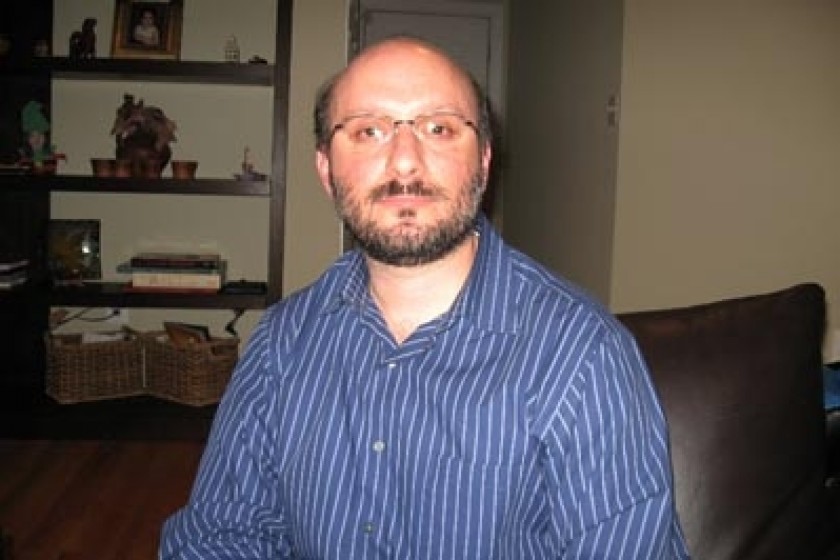
“The clergy must practice what it preaches”
Hetq talks to Zaven Kalalchian, who serves as a deacon at the St Marys Armenian Apostolic Church in Washington, D.C., about Armenia-Diaspora relations and the role of the clergy.
Why is it that most Armenians on Washington D.C. know so little about Armenia? I get the impression that they are cut off from Armenia.
I wouldn’t make such a generalization that the diaspora is not interested in Armenia. It’s another to say that the there is nothing organized in the diaspora regarding Armenia. There are no working conduits with Armenia. The other side of the coin is that the major problem here in the U.S. is to remain Armenian. This is an issue that unites us. All the efforts of our church is directed towards this, rather than sitting down and debating what can we do for democracy in Armenia, human rights or improving the educational system.
Then too, I don’t see any sincere efforts on the part of Armenia to make the diaspora a participant in the domestic life there. I assume that don’t want that diaspora to participate because that would entail some compromise on their part. The diaspora isn’t even directly involved in the investment process when it comes to realizing these projects. Monies are sent and that’s basically the extent of our participation. As to how the money is spent is another matter.
I believe the Armenian government could make real progress in certain sectors if it invited people over in a consultative capacity; in order to understand how certain specific problems should be tackled. There should be a greater exchange of ideas and experience. I mean to say that they are many in the diaspora with experience who are ready to assist Armenia.
Let me cite a personal example. In 2001, someone from Armenia invited me over to provide help on an engineering job. They liked my work. I stayed on in Armenia for another 6-7 years. I worked with the church for that period. Many appreciated the fact that I had moved to Armenia from the States. I felt good inside knowing that I was helping others. That’s quite important.
If you were appreciated in Armenia, why did you come to Washington D.C.?
My parents were in the States and they were getting on in years. They missed their grandkids. It was a major reason why I moved back. Then too, while I had thought about staying on in Armenia and becoming a priest, I had disagreements with the Catholics. I decided to seek my future elsewhere.
In actuality, you weren’t all that appreciated.
I was and I wasn’t. You are aware that there are pressures placed not only on average citizens but that they exist within the church as well. So, when I started to think about advancing professionally, coupled with my parents’ concerns, we chose to move back to the U.S. But we always aim to go back to Yerevan.
There have been recent press reports about a certain high ranking clergyman in Armenia who received an expensive car and a revolver as gifts. Don’t you think such displays sever the link between the church and society?
In theory, the fact that someone accepted an expensive car might not disrupt anything. That person received a gift from a student. However, if the general perception is created in society that average folk receive little from the church but that the church, in turn, only makes demands on the people, and that it gets much from the diaspora, that’s another matter entirely.
Average folk see that top clergy lead a pretty comfortable life, when they themselves are just making ends meet. This naturally creates a divide between society and the church. It also drives people to find spiritual nourishment elsewhere and from other sources. As to why the church behaves this way, I cannot answer. Perhaps it’s a holdover from the Soviet era or maybe the clergy is afraid of opening up before the people.
If they were to live the way Jesus Christ did, the clergy would lead a humble life and serve the people. Just maybe, our clergy find it too hard to humble themselves before the people they are called to serve.
I don’t want to say that the people are guilty, but they venerate the clergy and hold them in high position. The people aren’t wrong because they know no other way.
True, we must show respect towards members of the clergy but they must not be treated like princes or individuals with immunity.
Ideally, I would like to see the church in the role of a helper, someone who comes to the aid of other in need. Members of the clergy should lead by example – that they live what they preach.
The life of a Christian is not easy but it is correct. The clergy must understand that they cannot preach one thing and then turn around and do something totally different.
 Videos
Videos Photos
Photos
Comments (7)
Write a comment